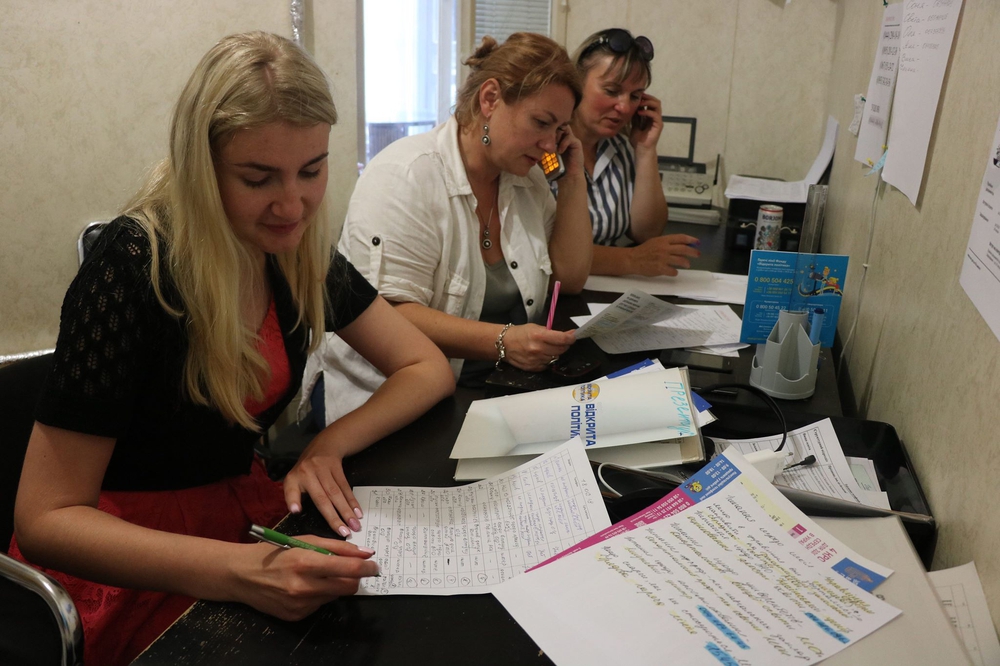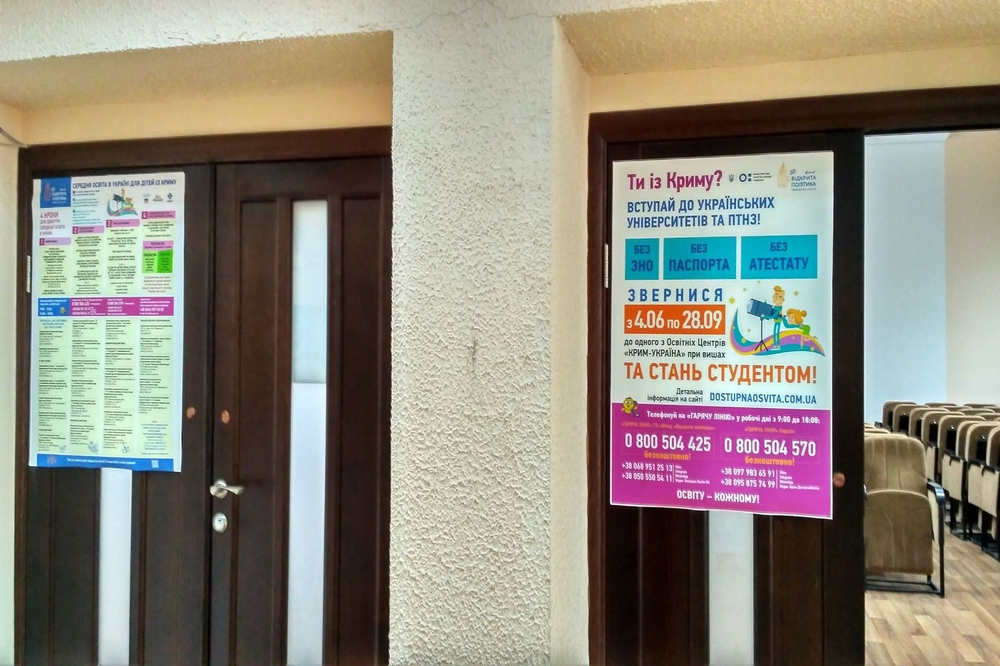News
The “hotline” of the Open Policy Foundation took a record number of calls during the operational period at the Ministry of Education and Science
Nov. 1, 2018, 4:53 p.m.During the 2018 admission campaign, the “hotline” of the Open Policy Foundation, which worked at the Ministry of Education and Science of Ukraine (MoES) from August 17 to August 25, received a record number of calls: more than 550 per day.
Together with MoES and with the support of UNICEF, the “hotline” of the Foundation has been working for the third year in a row on projects to ensure equal access to education for children and young people from non-government controlled areas (NGCA) of Ukraine, as well as the “contact line” and the “Available Education” program. During these three years, there has been a significant increase in calls to telephone consultation lines.
So, this year, since the beginning of 2018 (January-August), the “hotline” received almost twice as many calls (more than 10,500) than for the same period in 2017, of which 1,500 were from the east of Ukraine and Crimea.
It is worth noting that a very small number of those who called to the “hotline” from non-government controlled and occupied territories and the “contact line” told the exact place of their residence, at this limiting to the name of the area or region. At the same time, applicants who entered under the simplified procedure were most often from Donetsk, Luhansk, Horlivka, Makiivka, Avdiivka, and Alchevsk.
In general, the subject of a significant number of calls is connected with the ignorance of the admission rules by school leavers. The most common questions with which applicants from non-government controlled territories contact the Foundation’s “hotline” are the following:
- Distance education
- Simplified admission procedure through Educational Centers (EC)
- Registration in the application user account
- Low scores in the External independent evaluation
- Obtaining a Ukrainian passport in the form of an ID card
- Benefits for children of the ATO participants and internally displaced persons (IDPs)
- Receiving a military service registration certificate (for young men)
- Inability to take advantage of the rural coefficient through registration at NGCA
However, the admission campaign and hotline operating were rich in successful stories also. For example, an applicant from Crimea tried to enter the first course at the South Ukrainian K. D. Ushynsky National Pedagogical University majoring in “foreign language.” He turned to the “hotline” of the Open Policy Foundation because of problems with the ID card (passport of a citizen of Ukraine), namely the lack of a residence permit. The applicant was redirected to the State Migration Service of Ukraine, where he received confirmation of the document and permission to be admitted thanks to the passports and documents of his parents. In the end, a young man entered the state-funded education place.
A girl moved from Donetsk to Berdiansk and received IDP registration certificate in 2014. She moved with her family when half the year left before graduating from a college. The girl contacted the “hotline” consultants with the desire to come back to the Berdiansk Pedagogical College in order to complete her studies and get a state-recognized diploma of a junior specialist. She could not get a response from the college workers on this issue. On the hotline, she received clarifications on this procedure, after which the consultant of the Foundation phoned the college and its representatives contacted the girl. The entrant managed to recover.
A young man from Ilovaisk passed an external independent assessment for low scores and doubted that he would pass at least on a contractual form of study to the university. After calling the “hotline”, he received advice on the possibility of combined enrollment of his points and admission under the simplified procedure through the education centers, after which he applied to the EC.
Calls to the hotline of the Foundation continue to come: there are more and more appeals on issues of distance education.
It is worth noting that the 2018 entrance campaign for applicants from Crimea and eastern Ukraine has not yet been completed.
Thus, applicants from NGCA and across the “contact line” still have a chance to enter the state-funded form of education in vocational schools WITHOUT a general certificate of education and WITHOUT a passport.
To do this, they must contact the “Donbas-Ukraine” EC until September 26 and enter the state-funded education place in the Ukrainian vocational education institution.
At the same time, applicants from NGCA and across the “contact line” still have the opportunity to join the CONTRACT form of education in universities without Ukrainian documents - through the “Donbas-Ukraine” EC, which will operate until September 28. However, documents must be submitted before September 26. Next - they need to write an application with a request to transfer to the state-funded form of education.
See also: Video instruction on the entry under the simplified procedure into vocational schools - 2018 - https://www.youtube.com/watch?v=m_1iBOztgrA
“Hotline” of the Open Policy Foundation in Kyiv
0800504425 - FREE!
Mobile phones: +38 068-951-25-13; +38 050-550-54-11 (Viber / Telegram / WhatsApp / Skype: Dostupna Osvita).
Kramatorsk
0800 50 45 22 - FREE!
+38 066 113 93 75
+38 097 904 71 91
Skype: Dostupna Osvita Kramatorsk
Sievierodonetsk
0800 50 45 11 - FREE!
+38 099 345 20 76
+38 097 983 65 31
Skype: Dostupna Osvita Sievierodonetsk
Kherson
0800 50 45 70 - FREE!
+38 097 983 65 91
+38 095 875 74 99
Skype: Crimea Dostupna Osvita
Consulting telephone lines are open on weekdays from 9:00 to 13:00, from 14:00 to 18:00.


